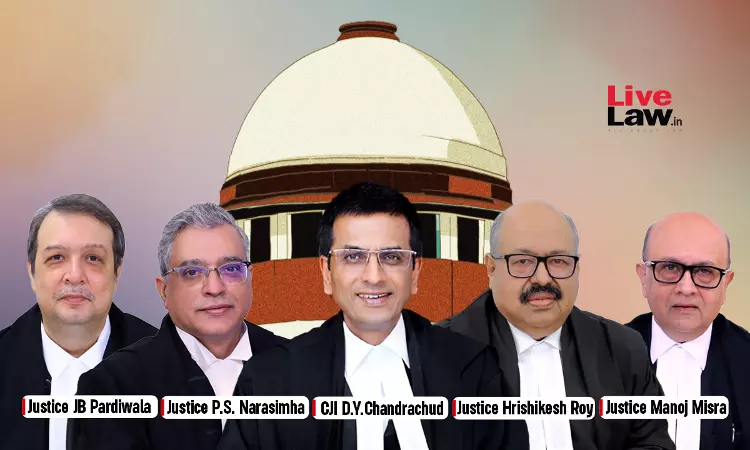Supreme Court CB Starts Hearing On Validity Of PSUs Appointing Arbitrators From Their Own Panels
Anmol Kaur Bawa
28 Aug 2024 8:28 PM IST

Next Story
28 Aug 2024 8:28 PM IST
A Constitution Bench of the Supreme Court today (August 28) commenced the hearing on the issue whether a person, who is ineligible to be appointed as an arbitrator, can appoint an arbitrator. The Constitution Bench comprising Chief Justice of India DY Chandrachud, Justice Hrishikesh Roy, Justice PS Narasimha, Justice JB Pardiwala, and Justice Manoj Misra was considering the issue. The...
